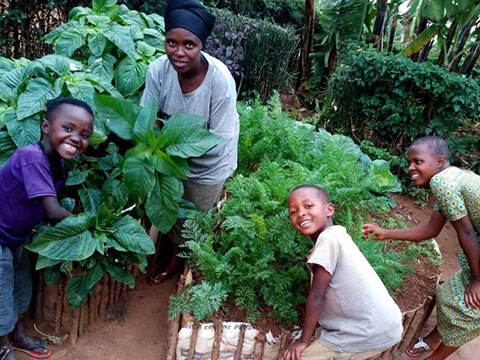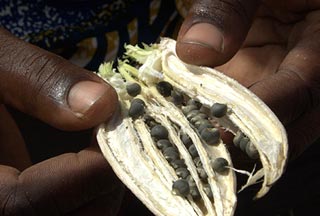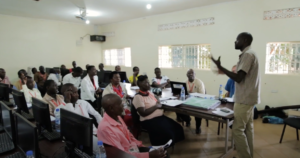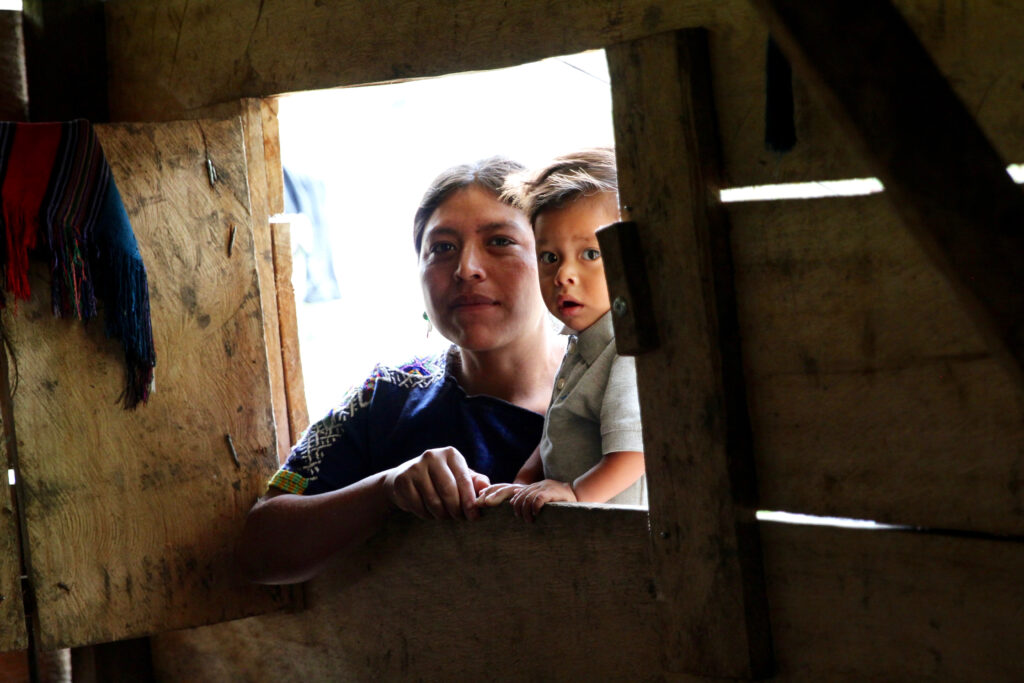Simple Solution, Life-Changing Result
While Thailand is a peaceful country, neighboring regions have been

Help families move from barely surviving to thriving when you join the special ECHO Thrive Team. Your monthly gift ensures life-changing trainings and resources are available. For as little as $10 a month, you can make a lasting difference. Monthly giving is a convenient way to give and show you care – with powerful results.

ECHO’s Online Gift Catalog gives you the opportunity to donate in honor of a loved one. Your hard-earned money will reduce hunger and improve lives worldwide and your recipient will have the heartwarming feeling of knowing that a gift was made in their name!
While Thailand is a peaceful country, neighboring regions have been

When agricultural lands are depleted or overgrazed, incomes dwindle and

Despite vibrant tourism and export economies, much of Central America and the Caribbean remains vulnerable to poverty and is also one of the most vulnerable regions to the effects of climate change. Countless families rely on small-scale farming, yet unpredictable weather patterns—from hurricanes to prolonged droughts—often destroy crops and livelihoods. As a result, hunger and malnutrition persist across the region.
 Additionally, degraded soils and limited access to agricultural resources have heightened food insecurity. When natural disasters strike, rural communities are often the hardest hit, lacking the means to adapt and recover. While in Central America the prevalence of undernourishment increased from 5.6% in 2019 to 5.9% in 2022, in the Caribbean there was an increase from 15.4% in 2021 to 17.2% in 2023 (FAO, 2024). Thereby, in the Caribbean, 7.2 million people experienced hunger in 2022 and 60.6% of the population experienced moderate or severe food insecurity (PAHO, 2023). In this context, sustainable long-term solutions to improve crop yields and build resilience are urgently needed.
Additionally, degraded soils and limited access to agricultural resources have heightened food insecurity. When natural disasters strike, rural communities are often the hardest hit, lacking the means to adapt and recover. While in Central America the prevalence of undernourishment increased from 5.6% in 2019 to 5.9% in 2022, in the Caribbean there was an increase from 15.4% in 2021 to 17.2% in 2023 (FAO, 2024). Thereby, in the Caribbean, 7.2 million people experienced hunger in 2022 and 60.6% of the population experienced moderate or severe food insecurity (PAHO, 2023). In this context, sustainable long-term solutions to improve crop yields and build resilience are urgently needed.
By establishing our Impact Center in this region, we are training smallholder farmers and intermediaries working with them with practical, climate-smart techniques that nurture both the land and the people who depend on it. Through hands-on trainings and innovative approaches, we aim to ensure families will break the cycle of poverty and cultivate a stronger future for their communities.
Smallholder farmers manage an estimated 70% of farmland across Central America and the Caribbean, many cultivating less than two hectares of land. These farms are a critical source of food and employment, accounting for up to 50% of the region’s agricultural output. (FAO, 2021)
The region experiences an average of eight tropical storms or hurricanes each year, leading to losses in crop yields and infrastructure that disproportionately affect small-scale agriculturalists. In 2020 alone, climate-related disasters caused billions of dollars in damages, further compounding poverty and food insecurity. (CEPAL, 2021)
Despite robust export sectors, more than 40% of people in rural areas remain below or near the poverty line, with limited access to markets, financing, and training. This hinders their ability to increase productivity and reduce malnutrition—particularly among women and children—who often face the greatest barriers to resources. (IFAD, 2020)
Studies suggest that adopting climate-smart and regenerative farming techniques could boost yields by 30–50% for certain staple and cash crops while simultaneously preserving soil fertility and water resources. Improving access to training, inputs, and market linkages can unlock new income opportunities, foster greater resilience to extreme weather events, and reduce hunger across the region. (World Bank, 2022)
Katalina holds a Bachelor’s degree in Environmental Sciences and a Master’s degree in Fundamentals and Practices of Sustainability from the University of Lausanne (Switzerland).
She has worked in Bolivia, Colombia, and Angola, focusing on research, environmental education, and the promotion of sustainable agri-food practices with local institutions and peasant communities.
Between 2019 and 2021, she implemented a Participatory Action Research project to strengthen agroecological production and commercialization in a rural municipality in the mesothermal valleys of Bolivia. In 2021, she visited farmer associations in the municipality of Apia in Colombia to systematize their good agricultural, commercial, and organizational practices to be shared with associations in gestation in Caribbean countries. Between 2022 and 2024, she was a consultant for the Food and Agriculture Organization of the United Nations (FAO) in Angola, in charge of two missions to strengthen the resilience of agro-pastoral communities through the promotion of agroecology and ecosystem conservation. In parallel, since 2019, together with her family, she implemented an agroecological farm in Bolivia as a model for teaching and raising awareness among the inhabitants of the Municipality of Vallegrande.
17391 Durrance Road
North Fort Myers, FL 33917
239.543.3246
info@echonet.org
We are voluntarily evaluated for financial transparency and accountability by these independent third-party organizations.
ECHO, Inc. is a 501(c)3 nonprofit organization registered under EIN: 23-7275283.